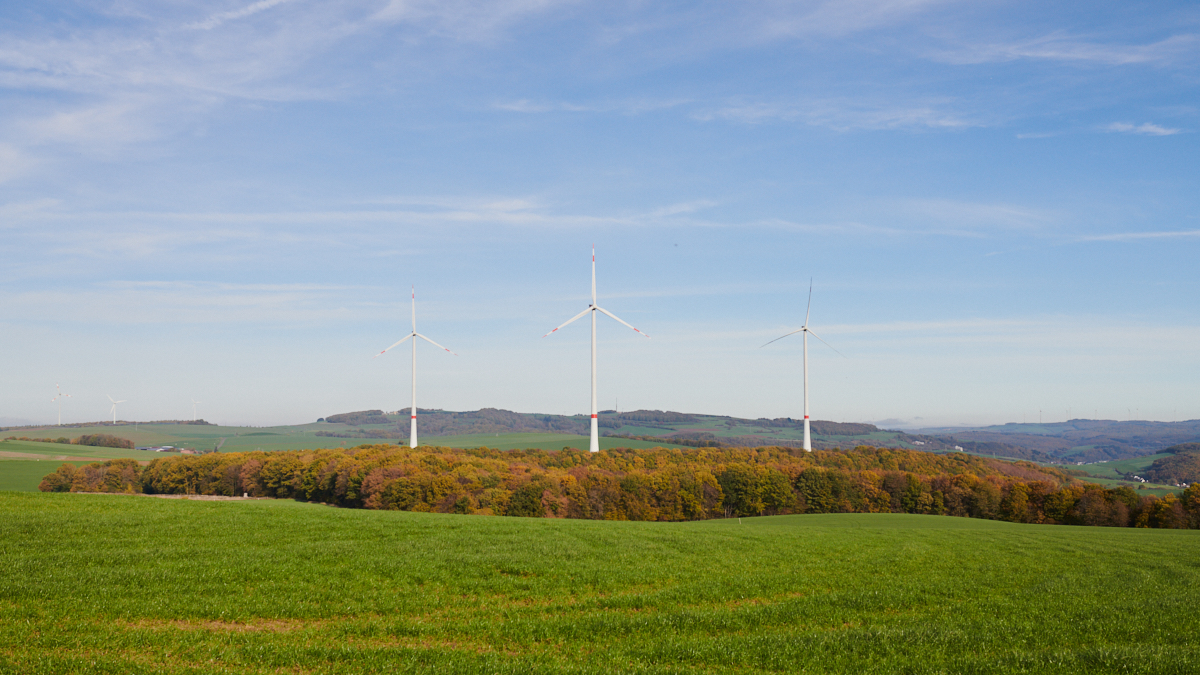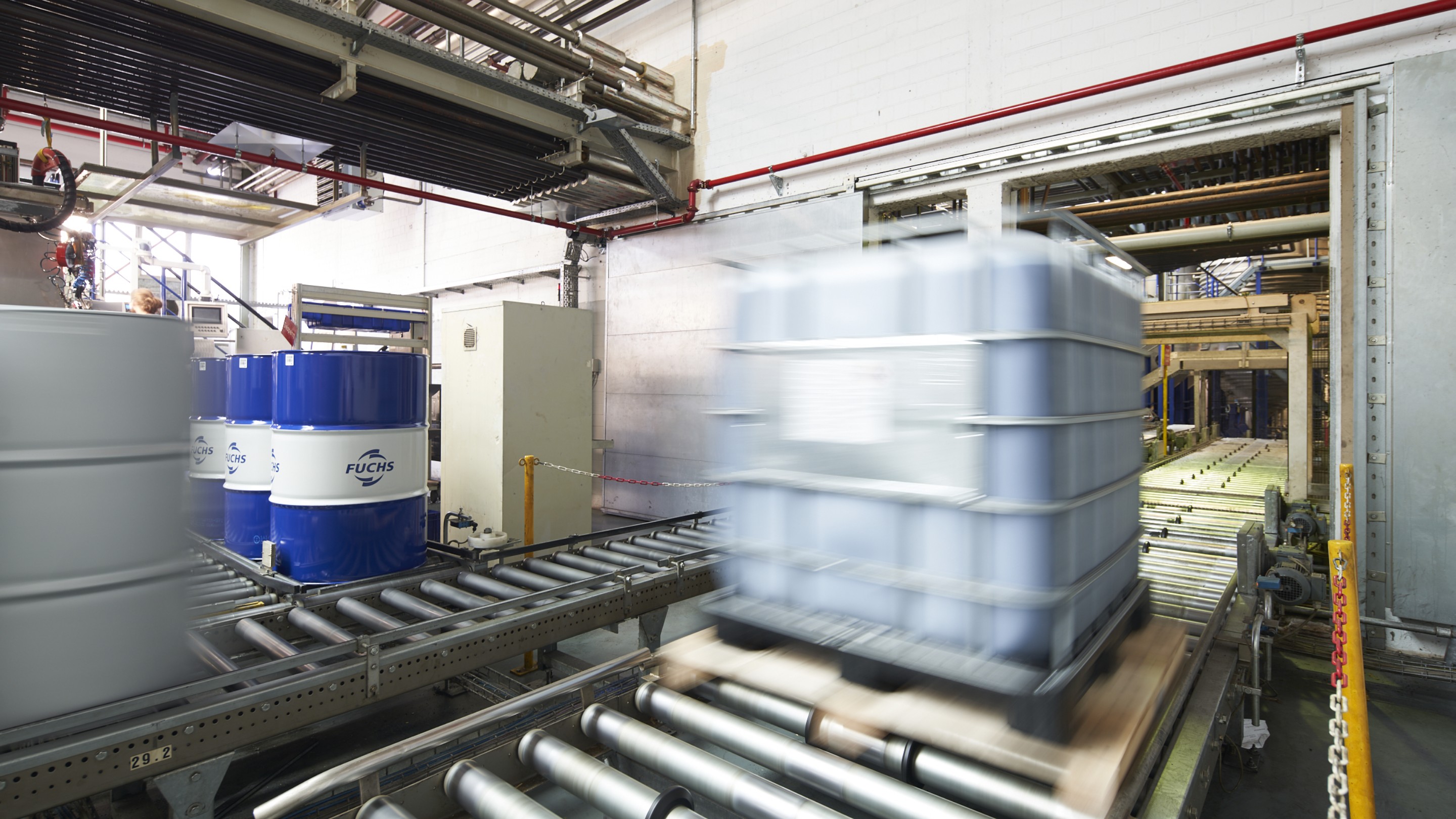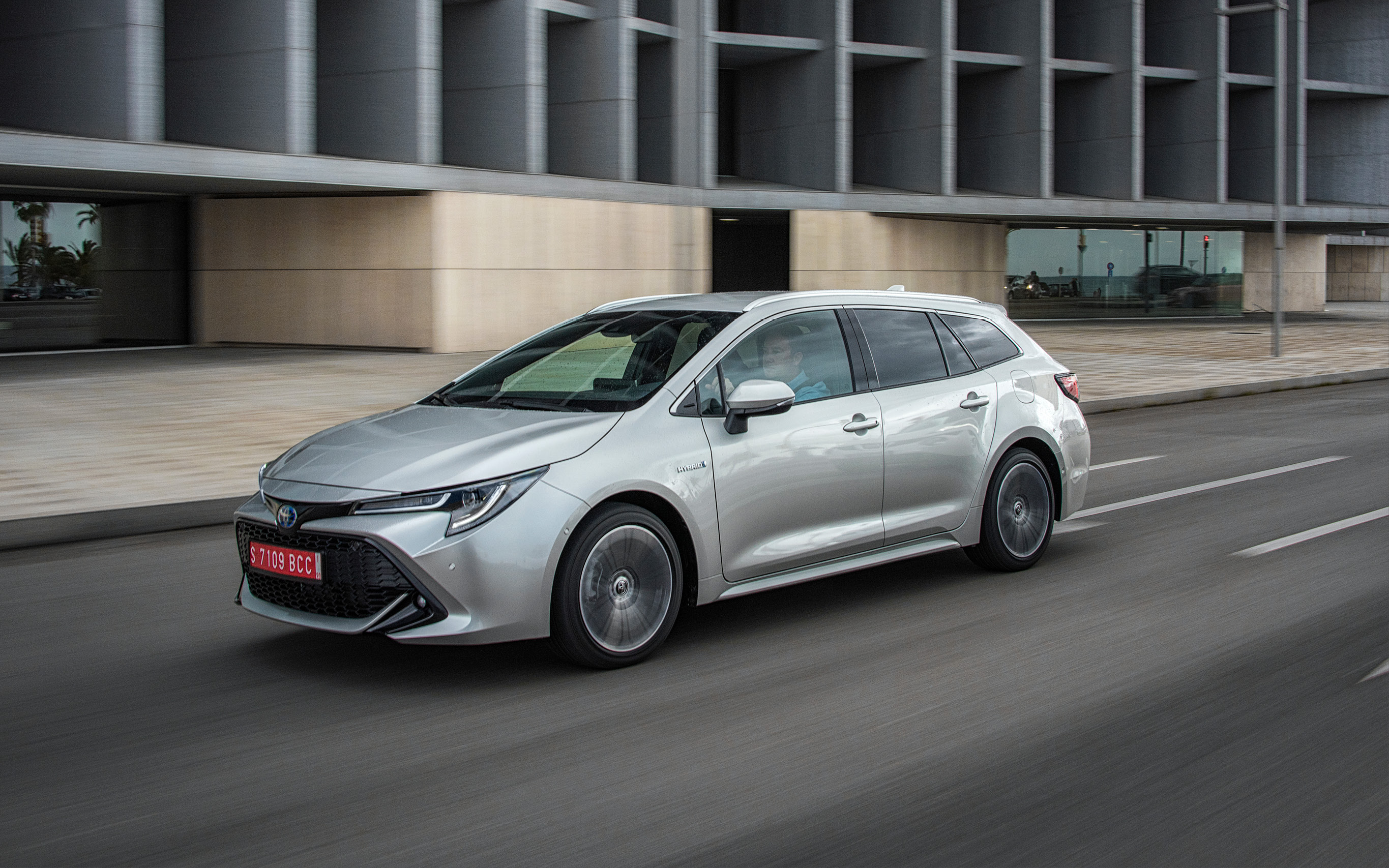Lithium – just the thought of the hotly sought-after raw material gives many purchasers palpitations. That's because there is no way around lithium lubricants in most applications. However, the raw material is in high demand and very scarce, which is leading to huge price increases. Alternatives are needed for areas where it makes sense technically. Polyurea greases are a top candidate – and are even superior in some cases in the FUCHS Development Department. Wind power is the perfect example.
The data portal Statista predicts a 756-percent increase in global demand for lithium in the ten years up to 2030. That means scarcity of resources. "A big contributor to this increase is e-mobility," says Tristan Rahm. He is Product Manager for Wind Power at FUCHS LUBRICANTS GERMANY. "One of the main components in batteries is lithium. This can lead to supply bottlenecks, so it makes sense to look for alternatives." That goes for the lubricants industry, too, because where lubricating greases are used, lithium-based greases are usually standard. The reason is simple: they provide excellent properties under virtually all conditions.
PU lubricating grease: the next generation
For years, FUCHS has been investing in a technology that can free customers from the effects of price hikes, resource scarcity, and deliverability of lithium. That technology is PU greases – PU standing for polyurea. In 2021, FUCHS opened the world's most advanced factory for the production of PU greases in Kaiserslautern.
The raw materials for producing these greases are cheaper than lithium. However, that's not the only advantage. They possess properties that exceed those of lithium greases in certain areas of application. Take their excellent resistance to heat, for example. "Thanks to intensive research, we have been able to improve our PU grease combinations in areas where they were previously inferior to lithium greases," explains wind power expert Tristan Rahm. "Resistance under extremely low temperatures, for example. And this combination makes it especially attractive for applications in wind turbines, among other things."

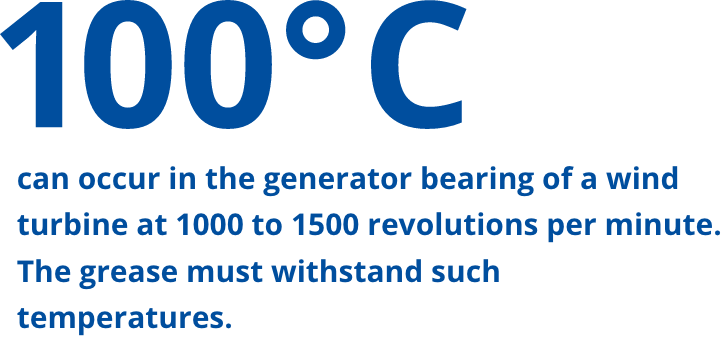
Extremely robust
"When it comes to lubrication of the generator bearing in wind turbines, temperatures of up to 100 degrees Celsius are generated at 1000 to 1500 revolutions per minute," explains Tristan Rahm. "If the grease doesn't hold up and becomes too soft, the generator can become damaged which causes the system to fail." The main reason for using lubricating greases is that they do not lose their consistency and stay where they are applied – and that's their decisive advantage over oils. That is why bearings and drive shafts, for instance, which are often only lubricated once in their service life, are protected against wear and corrosion using lubricating greases.
Under certain conditions, however, even lubricating greases can lose significant amounts of their oil. This is strongly dependent on their chemical make-up. In lubricating greases, a base oil is held in place by a thickener – similar to water in a sponge. Under high mechanical load, heavy vibrations, or very high temperatures, the oil can escape from this sponge-like structure. The structure of PU greases, however, remains stable for longer at high temperatures, which means that they can also release and reabsorb the oil for longer than lithium soaps. "In wind turbines, which have to run for up to 25 years, this is enormously important," says Tristan Rahm.

"Thanks to intensive research, we have been able to improve our PU grease combinations in areas where they were previously inferior to lithium greases – such as resistance to extremely low temperatures."
Strong at sub-zero temperatures thanks to hybrid technology
Yet it's not just heat that lubricating greases need to deal with in wind turbines. It can also get very cold at the sites where the systems are installed. "For example, if a wind turbine is located north of Norway close to the Arctic, it needs to be able to start up with little resistance at minus 40 degrees Celsius. Of course, that can't happen if the grease is frozen solid," explains Tristan Rahm.
Until recently, PU greases did not perform as well here as lithium greases. However, FUCHS has succeeded in making its PU greases more resistant to low temperatures – without them losing their heat resistance. "Using a patented thickener technology, we combine other thickener types with polyurea. Calcium soap, for example. This has even better low-temperature properties than lithium soap – and excellent water resistance." That, too, is an enormously valuable property, particularly for the operation of off-shore wind energy plants, which are permanently confronted with high humidity and rain, putting them at risk of corrosion or water incursion. The extremely reliable performance of the PU greases in terms of minimizing friction, life-long lubrication, and corrosion protection therefore mean that the green energy is produced as sustainably as possible. "With our hybrid thickener," sums up Tristan Rahm, "we have combined the best properties of two thickener types." Thanks to this technology, FUCHS can tailor greases to certain applications better than ever before.
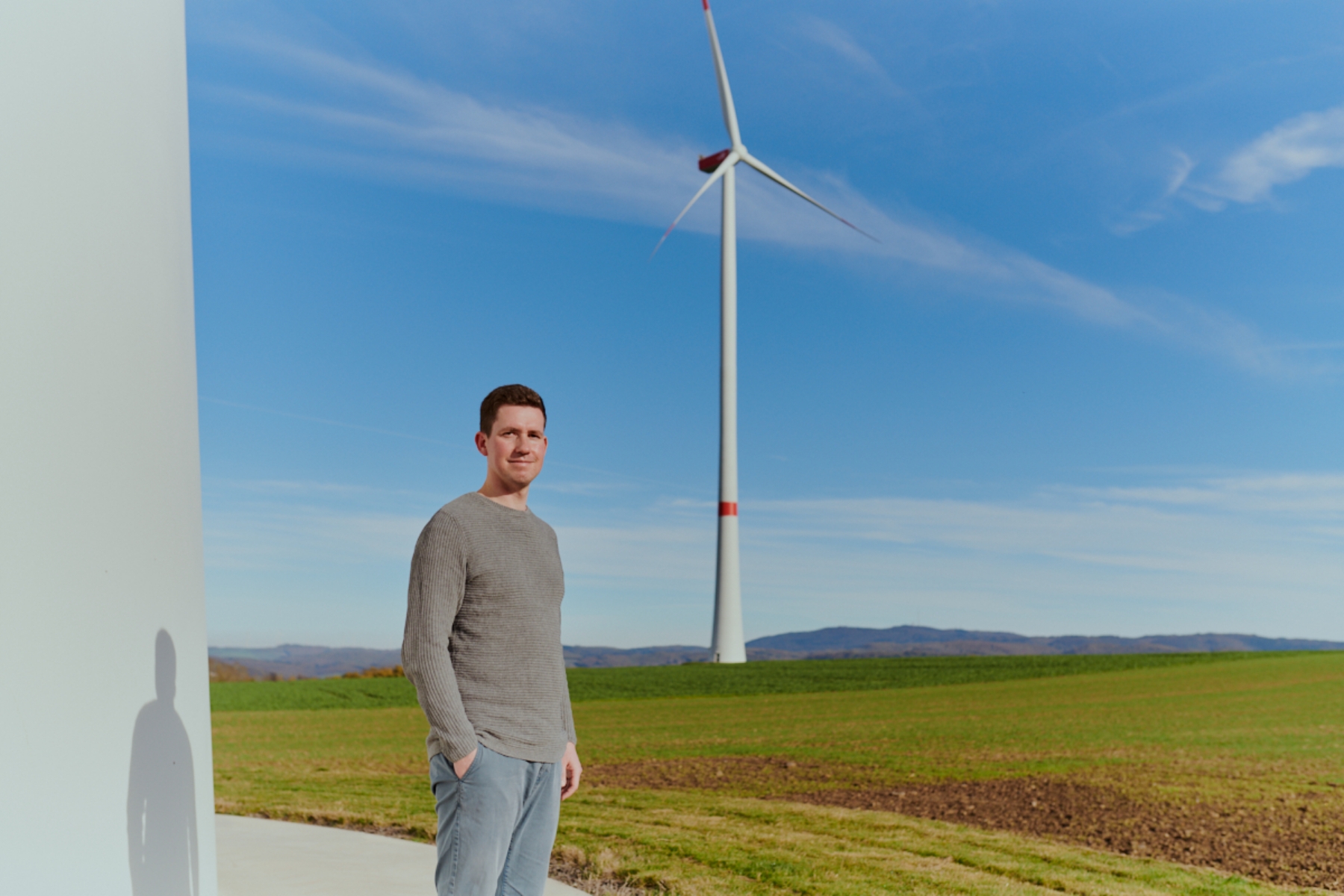
Great potential for sustainability
The PU greases from FUCHS also open up new opportunities in terms of sustainability. Together with external partners like the Fraunhofer Institute or raw material suppliers, FUCHS is evaluating new ways to obtain the required materials carbon-neutrally and from entirely renewable raw materials and biomass – without compromising the performance of the lubricants. What is more, production requires less energy than for lithium greases.
It's not without reason that PU lubricating greases are increasingly in demand in various sectors – not just in wind power, but also in the food industry or for vehicle drivetrains. They already play an important role in e-mobility.
SHORT INTERVIEW
A wise choice
Polyurea greases are becoming increasingly popular in many industries. In construction, they are able to stand up to even the biggest challenges. Florian Hahn, Head of Product Managment Greases at FUCHS, explains why.

What is required of lubricating greases in the building sector?
The primary task for the lubricant is to provide technical efficiency. That's the customer's basic need. Yet environmental compatibility and biodegradability are also becoming more important. As such, the ecological factor is increasingly decisive when choosing between two technically comparable products.
Which challenges are PU greases particularly good at tackling?
I would say reducing friction values and thereby cutting energy requirements and CO2 emissions. What is more, we are able to produce very high-performance PU greases, which extend running times and cut down on lubrication intervals. Of course, that doesn't apply exclusively to PU greases. It needs to be the right lubricant for the respective application. And at FUCHS, that lubricant is increasingly a PU grease.
Are there applications in the building segment in which PU greases have advantages over soap greases?
Yes, for example applications with high temperatures or strong vibrations. PU greases have comparatively low oil separation. When subjected to vibrations, they lose less oil than other greases. Otherwise, choosing the right grease also makes the difference here, regardless of the thickener. Generally though, the properties of PU greases are very beneficial in respect to technical requirements in the construction industry.
